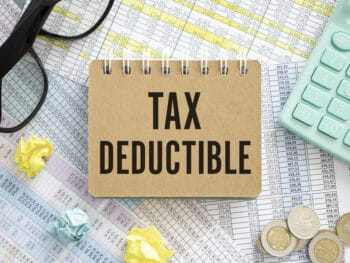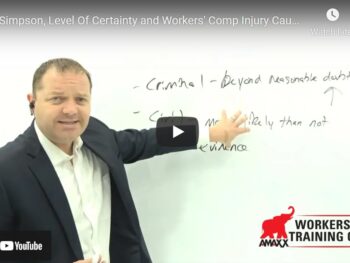Work comp is a “remedial statute” which did not exist prior to the first decade of the 20th Century. In addition, most comp laws are “administrative” laws which are not governed by strict rules of procedure, as are negligence claims. And just to complicate things a bit more, most comp laws have a rule that a decision does not have to be based on “preponderance of evidence” – all that is required is a “scintilla” of evidence, meaning just a bit more than nothing at all. Also, comp laws do not have the rule of “stare decisis” (pronounced “starry decisis”, not rhyming with “share”), which means that the comp board can contradict any of it’s decisions with any and all prior decisions.
And what about which comp board takes jurisdiction over an accident which occurs in state A, involving an employer from state B, whose home office is in state C?
What about all that? Lots of unpleasant surprises.
Unpleasant Surprises At Work Comp Hearings
Informal Rules of Procedure
First, informal rules of procedure. A hearing officer can admit hearsay and facts which are not remotely relevant, allowing witnesses to discuss all manner of things that would never be permitted in formal courts.
And do not be quick to assume that you have won because every witness but one testified on your behalf, except for that vague, largely unintelligible witness with memory challenges. If that’s the one the judge wishes to believe, you just may have lost.
Have you been to the Board 99 times and won on the same issue? You may, on identical facts, lose the 100th time. It doesn’t matter that you, or anyone else, has ALWAYS won on those facts.
Multi-State Jurisdiction
Now we come to the issue of which state takes jurisdiction when two, three or even five states could be appropriate. The answer is…………….ALL can simultaneously take jurisdiction. However, the awards, when totaled, cannot exceed the maximum in the state that has the highest comp rates.
But really, does that ever happen? Yes, all the time, especially with crew members of commercial airlines. Your author had to endure a period where a New York City comp firm managed to get most of the flight crews to sign up for NY comp, no matter where or how the injury occurred, or even if the claim was already in progress in several states. The idea faded only when the workers discovered that NY rates were the lowest and, just maybe, they might have to appear a few times at the NYC board.
Of course, the extreme examples are rare – but possible. Which is why employers should never – EVER – rely on common sense in predicting what problems they may face in comp.
Best Preventative Measure Is To Gather Facts & Relay Them To Carrier
And the best preventative measure an employer can take is to gather facts and relay them to the carrier. A low, low chance of a bad surprise is far better than rolling the dice at a hearing.
Author: Attorney Theodore Ronca is a practicing lawyer from Aquebogue, NY. He is a frequent writer and speaker, and has represented employers in the areas of workers’ compensation, Social Security disability, employee disability plans and subrogation for over 30 years. Attorney Ronca can be reached at 631-722-2100. medsearch7@optonline.net
©2014 Amaxx Risk Solutions, Inc. All rights reserved under International Copyright Law.
WORK COMP CALCULATOR: http://www.LowerWC.com/calculator.php
MODIFIED DUTY CALCULATOR: http://www.LowerWC.com/transitional-duty-cost-calculator.php
WC GROUP: http://www.linkedin.com/groups?homeNewMember=&gid=1922050/
SUBSCRIBE: Workers Comp Resource Center Newsletter
Do not use this information without independent verification. All state laws vary. You should consult with your insurance broker, attorney, or qualified professional.






















